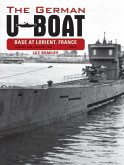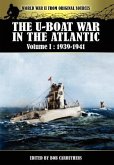Admiral Topp's memoirs reflect the faith, hopes, errors, and transformations in a man's life, indeed those of a whole generation whose understanding of history and ideology were held captive by the myth of power. The terrible annihilation in World War II and, even more so, the unimaginable destructive potential of nuclear weapons, have resulted in a change in the use of power. The author's diaries and journals, along with their contemporary interpretation, illustrate the political dimension of this change. Topp wrote this book to illuminate a segment of twentieth century history which can only be portrayed truthfully by those who themselves have lived and suffered through it. Topp also describes freely the era of the Third Reich. Even today, after long years of occupying positions of leadership, the author feels the burden of historical responsibility. In this sense his book is a statement about the ambivalence of human existence. It provides answers to the question of why a whole generation of Germans followed the mesmerizing siren song of a totalitarian regime, an experience which still looms like a shadow over the living.








